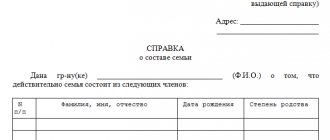General information about inheritance of cash deposits
Grounds for inheritance
The rights and conditions for receiving property as an inheritance are regulated by Part 3 of the Civil Code of the Russian Federation. According to the law, inheritance is registered according to a will or in the order of succession . If we are talking about a bank deposit, then its acceptance can be carried out on the basis of an order drawn up by the owner of the account at the financial institution.
The procedure for registering a deposit in the event of the death of the depositor is practically no different from inheriting various types of property.
Important! The successor will be able to receive the savings of the deceased if all the conditions for entering into an inheritance are met, and documents and a certificate of inheritance are provided.
Conditions
Citizens specified in a will or in a bank order can receive a deposit. If these documents were not drawn up by the account owner during his lifetime, then the savings are transferred to the family members of the deceased in order of priority.
According to the law, the following cannot inherit the property of the deceased:
- citizens responsible for the death of the testator;
- persons who put pressure on the testator for personal gain;
- parents deprived of parental rights (if the testator is their child);
- persons evading the duties of maintaining incapacitated parents.
Joint property
The bank deposit is the joint property of the spouses . Any property acquired by spouses during marriage is their joint property (Article 34 of the RF IC).
Consequently, the spouse has the right to withdraw ½ share of the deposit from the bank before entering into inheritance. To do this, you must obtain a certificate of allocation of the marital share. The second part of the deposit is divided equally between the heirs.
The exception is the situation when the spouses have drawn up a marriage contract. If there is an agreement, the spouse has the right to the share specified in it. A prenuptial agreement may recognize the contribution as the contributor's personal property or increase the spousal share.
Example. The citizen made a cash deposit. Heirs of the 1st line are a wife and an adult daughter. The deposit was opened during the marriage. Therefore, half of the amount belongs to the wife of the deceased man. The second part is divided between the wife and daughter of the testator. As a result, the wife’s part amounted to ¾, and the daughter owns ¼ of the deposit amount.
Acceptance of funds by law and other means
Bank savings can be inherited in three ways:
- in law;
- by will;
- by bank order.
Video about how you can inherit a bank deposit:
In law
Legal inheritance is carried out in the absence of a disposition and a will. The Civil Code provides for 8 lines of successors:
- Mother, father, children.
- Sisters and brothers, grandparents.
- Uncles and aunts.
- Great-grandparents.
- Great-aunts, grandfathers, grandchildren.
- Cousins and uncles, nephews, great-grandchildren.
- Non-natural mother and father, stepsons and stepdaughters.
- Incapacitated persons who were in the care of the deceased.
The savings of the deceased are transferred to the successors of the subsequent line in the absence of persons of the previous one. The funds are distributed among legal successors in equal parts.
Video explaining the successor queue:
By will
If the account owner has drawn up a notarized will, then the savings go to the persons specified in the will. The account owner has the right to appoint any person or legal entity as a successor to the funds, regardless of family ties and other circumstances.
Article 1149 of the Civil Code of the Russian Federation also defines persons entitled to an obligatory share in the inheritance, which include:
- children of the deceased, under 18 years of age;
- disabled adult children;
- spouse recognized as disabled;
- dependents.
Video about who is entitled to a mandatory share in the inheritance:
They enter into an inheritance regardless of what is written in the will and which legal successors were identified in the document. By law, they are entitled to at least 50% of the entire inheritance, which would have been accepted by them if they inherited by law.
By testamentary disposition
Unlike other property, cash deposits can be inherited by testamentary disposition . Such a document is drawn up by a person when opening a bank account or any other time during which the agreement with the bank is valid. The account owner, at his discretion, can indicate in the order of the people to whom the savings will pass after his death.
Receiving an inheritance of a cash deposit by order drawn up at the bank has a number of features:
- Just as in the presence of a will, a bank order provides by law for the entry into the inheritance of persons who have obligatory shares.
- If the document indicates a minor citizen, then he will be able to receive savings only when he reaches 18 years of age.
- If the account owner made an order in the bank, and later executed a will with a notary, in which he changed the list of legal successors and their shares, then the order becomes invalid in whole or in part.
- According to the Civil Code of the Russian Federation, savings can only be received after six months from the moment of death. However, the law provides for an exception if relatives need money for a funeral. Family members of the deceased and heirs can receive funds (the maximum allowable amount is 40 thousand rubles) to pay for funeral services without waiting 6 months.
- If the contribution is jointly acquired property, then upon the death of one of the spouses, half of the money is due to the second. The remaining amount is divided according to the terms of the order.
- If the testator indicated a list of legal successors in the order, but did not register their shares of the inheritance, then the savings pass to the heirs in equal shares.
Is it possible to withdraw funds early?
The law provides the following options for early withdrawal of funds:
- In the absence of other heirs . It is possible to completely withdraw the deposit from the testator’s account ahead of time only in one case - the presence of categorical evidence that there are no other heirs. However, for this you need to obtain a certificate of inheritance rights. Under such circumstances, the notary can issue it before the expiration of 6 months (Article 1163 of the Civil Code of the Russian Federation).
- To organize a funeral. Without a certificate, the heirs can withdraw the money partially. The basis is to cover expenses caused by a pre-mortem illness, the funeral of the testator or protection of the inheritance (Article 1174 of the Civil Code of the Russian Federation).
Claims for reimbursement of costs may be made against the executor of the will or the estate. The legislator determined that to ensure a decent funeral for a person, any money can be used - deposits or funds in accounts.
Reimbursement of citizens' expenses occurs on the basis of a notary's decision. The document must be submitted to the bank where the deposit is located.
The heir can withdraw the necessary amount for the funeral of the testator at any time before the expiration of the 6-month period . The maximum amount that the bank issues on the basis of a notary’s decree should not exceed 100,000 rubles.
Registration procedure
The process for registering a monetary contribution to an inheritance is as follows:
- contacting a notary.
- Obtaining a certificate of inheritance.
- Contacting the bank.
The procedure depends on how the successor enters into the inheritance - by law, by will or by testamentary disposition.
Where to contact?
Regardless of how a person enters into inheritance, he needs to contact a notary to obtain a certificate of entry into inheritance rights.
To find out which notary office the deceased was attached to, you can contact the notary chamber of the city in which he lived and find out this information there. Another way is to go to any notary and find out the location of the specialist you are looking for from him.
Reference! According to Article 1154 of the Civil Code of the Russian Federation, the right to inheritance must be registered within 6 months after the death of a person.
If this period is missed, the bank deposit is recognized as escheated property and transferred into the possession of the state or municipality.
However, an heir who has missed the deadline for entering into rights can restore it in court.
Drawing up an application
An application for acceptance of inheritance must be submitted to the notary's office. You can take the form from a notary and fill it out on the spot or fill it out yourself by downloading it from the Internet.
The application contains the following information:
- In the header of the document - the address of the office and the full name of the notary, the applicant's full name, address and contact information.
- The title is “Application for Acceptance of Inheritance.”
- The body of the document contains information about the testator: date of death, place of residence, date of birth, full name, death certificate number.
- Full name of the applicant.
- Method of accepting inheritance.
- Request for a certificate.
- Date and signature.
Package of necessary documents
Along with the application, the notary must provide:
- passport;
- papers confirming the relationship with the deceased (if inheritance is carried out by law);
- death certificate;
- will (if written);
- agreement with the bank (if the applicant has one).
Contacting the bank
After 6 months after the death of the account owner, the notary issues a certificate to the heir. Only after receiving it can he apply to the bank to receive his share of the deceased’s savings.
You need to provide the following documents to the bank:
- certificate of inheritance;
- passport;
- agreement on the division of property in which shares are determined (if there are several legal successors);
- court decision (if a person was recognized as an heir as a result of legal proceedings).
Attention! If the legal successor inherits savings under a testamentary bank order, and the deceased’s account was opened before March 1, 2002, then he does not need to obtain a certificate from a notary. In this case, the deposit can be withdrawn by testamentary order by presenting only a passport.
Duration of the procedure
You can receive a certificate of the right to inherit a cash deposit and other property after 6 months after the date of death of the account owner. Access to the deposit is opened depending on which bank the account was opened with. On average, the procedure for reviewing an application at a bank for receiving a deposit by inheritance lasts from 1 to 3 days.
State duty and other expenses
According to Article 333.38 of the Tax Code of the Russian Federation, citizens who inherit bank deposits are exempt from paying state duty.
Costs may arise during the technical and legal registration of an inheritance with a notary:
- 50 rub. for a request to the bank in order to find the inherited deposit and the bank in which it is located (if the heir is not aware of the location of the savings);
- about 1000 rub. – for the legal and technical work of a notary;
- 100 rub. – certification of the application for a certificate;
- 100 rub. – duplicates and copies of documents.
On average, receiving a deposit as an inheritance will cost 1000-1500 rubles.
A case from judicial practice
Citizen S.'s father died. She turned to a notary and provided all the necessary documents to receive the inheritance. Knowing that her father had deposits in Sberbank, the woman contacted the bank on the 4th day after her father’s death, providing documents about his death, and completed the procedure for searching for deposits at the request of a notary. After receiving a certificate of inheritance, the woman wanted to transfer funds from two of her father’s accounts, one of which had a card. It turned out that the money in account 2 was withdrawn on the 11th day after the death of the father by another person. The woman filed a lawsuit because the bank refused to provide a refund, and appeals to the police and the prosecutor's office did not bring results.
In fact, the bank could have blocked the deposits, but referred to the fact that it had not received a request for blocking. Sberbank determined that the correct PIN code was used when withdrawing funds. An application for a refund from an international card had to be submitted within 60 days from the date of the disputed transaction, but the heiress applied only 6 months later. Thus, the fact of violations on the part of the bank was not established, and the court decided to refuse citizen S. to return the funds from the bank and to collect a state duty from her.
Such cases are not uncommon. By contacting the bank, you need to clarify what actions can be taken to ensure the safety of funds in the accounts of the deceased.
Obtaining a legal inheritance is not difficult, but for this it is necessary to fully comply with the procedure for accepting rights and obligations. Most often, difficulties are associated with disputes between relatives, late submission of documents, and lack of knowledge of how to protect property from the claims of unscrupulous heirs.
You can resolve any issues by consulting with the lawyers of the website ros-nasledstvo.ru. Qualified and timely assistance will help you not to miss important points when contacting a financial institution and receive money legally.
FREE CONSULTATIONS are available for you! If you want to solve exactly your problem, then
:
- describe your situation to a lawyer in an online chat;
- write a question in the form below;
- call Moscow and Moscow region
- call St. Petersburg and region
Save or share the link on social networks
- FREE for a lawyer!
Write your question, our lawyer will prepare an answer for FREE and call you back in 5 minutes.
By submitting data you agree to the Consent to PD processing, PD Processing Policy and User Agreement
Useful information on the topic
120
State duty upon entering into inheritance in 2021
According to the legislation of the Russian Federation on taxes and fees upon entry into...
17
Statement of claim to establish the fact of acceptance of inheritance in 2021
Actual inheritance from a legal point of view is regarded as a full-fledged method...
5
Who is legally a close relative?
In such a concept, obvious at first glance, as “close relatives”...
12
Inheritance by right of representation
The order of inheritance in the absence of a will is regulated by Chapter 63 of the Civil Code...
16
Selling a house or apartment after inheritance
After receiving the inheritance, the successors can dispose of it at their own discretion....
36
Actual acceptance of inheritance
To take possession of inherited property, you must accept it. Exists…
Possible difficulties
The inheritance procedure is often associated with some difficulties:
- Missing the application deadline;
- disagreements between legal successors, which may result in a lawsuit;
- refusal of the bank to receive savings legally.
The successor can defend his interests in court. If they missed the deadline for entering into an inheritance, then they can only restore it through the district court.
On our website you will find information not only on how to correctly inherit a bank deposit, but you will also be able to familiarize yourself with the rules of inheritance of various real estate, apartments, houses, land plots, businesses, cars, and you will also be able to find out whether it is possible to inherit a savings account. part of the deceased's pension.
Deposit executed without a will
There are two ways to find out about such a contribution:
- The depositor informed his relatives that his savings were in the bank.
- Through a notary: usually he makes a request to the banks after the inheritance case has been opened. This is one of the stages in the formation of the hereditary mass.
If there was no will for the deposit, the savings will be divided among the legal heirs. As a rule, these are the children and parents of the deceased. If there are none, or they refused to accept the inheritance, relatives of the next level are called upon: brothers and sisters of the testator, as well as his grandparents. All relatives are invited to accept the inheritance one by one according to the order of the lines of kinship ( Article 1142-1145 of the Civil Code of the Russian Federation ).
Even if the testator bequeathed all the property to one or more persons, but did not determine in the text the fate of deposits and securities, the savings are distributed only among the legal successors.
Legal successors are required to include in the inheritance file:
- A copy of an identity document (passport, birth certificate and passport of a legal representative);
- Copies of documents confirming kinship (in addition to the birth certificate, this can be a chain of documents if we are talking about successors of the second and subsequent lines or heirs by right of representation).
After six months, you need to obtain from a notary a document confirming the right of inheritance. Before this you will have to pay a state fee. It is calculated as a percentage of the deposit amount or the value of securities: 0.3% for immediate relatives, 0.6% for others.
If the bequest is in the bank
The inheritance of a bequeathed deposit kept in a bank has a number of features:
- The bank is not obliged to notify the relatives of the deceased about the presence of a deposit. If the legal successors do not know about the existence of the bank account, then the funds, upon expiration of the statute of limitations, will be recognized as escheated property and transferred to the state.
- Legal successors have the right to leave inherited savings in the account, transferring it to themselves, or withdraw these funds.
Deposits in foreign banks are inherited according to the rules provided for by the laws of the state in which the financial institution is located. The size of the property due and the conditions for entering into rights will be influenced by the legislation of a particular country. Registering an inheritance deposit in a foreign bank is often associated with the difficulty of finding it. To find out in which country and which institution the funds are located, you need to contact an account tracing organization.
The procedure for receiving funds from a bank deposit is practically no different from the generally established inheritance procedure. The only differences are the absence of state duties and the ability to enter into rights by bank order. The most important thing is not to miss the 6-month deadline for contacting a notary, otherwise you will have to restore your right in court.
How to receive a deposit before six months from the date of death
In Russia, it is popular to make deposits “for future funerals” - so as not to burden relatives. The Civil Code allows the use of funds from the deposit for this purpose ( Article 1174 ). To do this, heirs by law or by will can contact the bank with an application to issue money for the funeral or as compensation for the funeral.
A third party who paid for the funeral can also apply for compensation at the expense of the testator, if he has permission issued by a notary.
You can withdraw no more than one hundred thousand rubles.
Expenses for entering into inheritance rights
To enter into an inheritance, you do not need to make any monetary transactions into the state budget. Such taxes have long been abolished. However, you will have to pay some money for notary work. It will be calculated primarily based on the tariffs established by the government. This allows us to reduce competition in this area.
Few people know how else it is possible to receive money from a deposit. Recently, assistance in registering and processing inheritance rights has also been provided at the MFC. But it is worth considering that it cannot be provided without notarial assistance. The certificate subsequently issued can only be made by a notary appointed to his position by the state apparatus.
Power of attorney
If citizens cannot resolve issues related to receiving an inheritance themselves, they have the right to involve third parties. The successor's representative has the right to contact the bank and the notary in his place. The basis for applying for and receiving funds is a notarized power of attorney, which gives the representative of the legal successor all the necessary powers.
Inheritance of an unpaid pension
Article 1183 of the Civil Code of the Russian Federation gives the dependents of the deceased and his relatives the right to inherit an unpaid pension. They are paid a pension for the month in which the death of the pensioner occurred . You need to apply for it within 4 months after the opening of the inheritance.
Documents for receiving an unpaid pension:
- identification document of the applicant;
- document on relationship;
- death certificate;
- testator's pension certificate;
- statement;
- certificate from place of residence.
Savings pension by inheritance
According to the legislation of the Russian Federation, the heirs of the deceased have the right to receive the funded part of the pension. The parents, children and spouse of the testator have priority rights to it. If the funded part of the pension has not been received, it is part of the inheritance and is inherited in the general manner .
documents must be provided :
- statement;
- death certificate;
- documents on kinship;
- identification documents of the applicant;
- document on the amount of the funded part of the pension.
To receive funds, you must contact the Pension Fund , or the fund in which the savings are placed.
Inheritance of unpaid wages
In accordance with Art. 1183 of the Civil Code of the Russian Federation, family members of the deceased and disabled citizens who were in his support have the right to receive the unpaid part of the salary. They need to submit an application to the deceased’s employer no later than four months from the date of opening of the inheritance. According to Art. 141 of the Labor Code of the Russian Federation (Labor Code of the Russian Federation), wages are issued within a week from the date of submission of the application.
If the unpaid portion of the salary is not received , it is included in the inheritance and is inherited in the general manner.
Withdrawing money from the deceased's accounts by power of attorney
During his lifetime, the depositor can write a power of attorney to dispose of the deposit to a third party: a relative or not. Using this power of attorney, a citizen can withdraw and replenish the account at his own discretion (for example, to pay for treatment when the depositor himself is in the hospital).
By law, such a power of attorney has legal force until the death of the investor. After this, the right cannot be exercised, no matter who the trustee is to the testator.
If for some reason (for example, due to ignorance of the fact of death) the trustee withdraws money after the death of the investor, the court will recognize this fact as illegal enrichment.
About issuing deposits
With regard to ordinary bank deposits, the legislator has normalized the practice of banks issuing deposit amounts to accounts specified by depositors, instead of issuing cash. After the adoption of the norm, the practice of issuing deposits in cash may be significantly reduced , and transfers of deposits to depositors’ accounts will become the norm, for which banks may impose additional fees.
In view of the above, the content of bank deposit agreements should be treated with sufficient attention in order to avoid charging fees for transfers to depositors’ accounts.
At the same time, even now, non-cash returns take place, and predominately, in cases of opening deposits through online services and bank applications. Moreover, this trend, as most experts believe, is associated with the Federal Law of August 7, 2001 No. 115-FZ “On Combating the Legalization (Laundering) of Proceeds from Crime and the Financing of Terrorism,” the implementation of which by banks has recently caused a lot of trouble for business entities, which caused a significant resonance.
Barriers
The process of inheritance is sometimes complicated and delayed by special cases:
- conflicts between legal successors or the emergence of new persons;
- late submission of an application to a notary, when 6 months have already passed since the death of the testator;
- The bank refuses to disclose information about client deposits.
In such cases, they go to court with a claim for all property or only for the monetary part of it. The claim states:
- information about all participants in the inheritance division process;
- court data;
- the essence of the complaint, the circumstances that forced you to go to court;
- final petition.
The application must be accompanied by documents that are relevant to the case.








